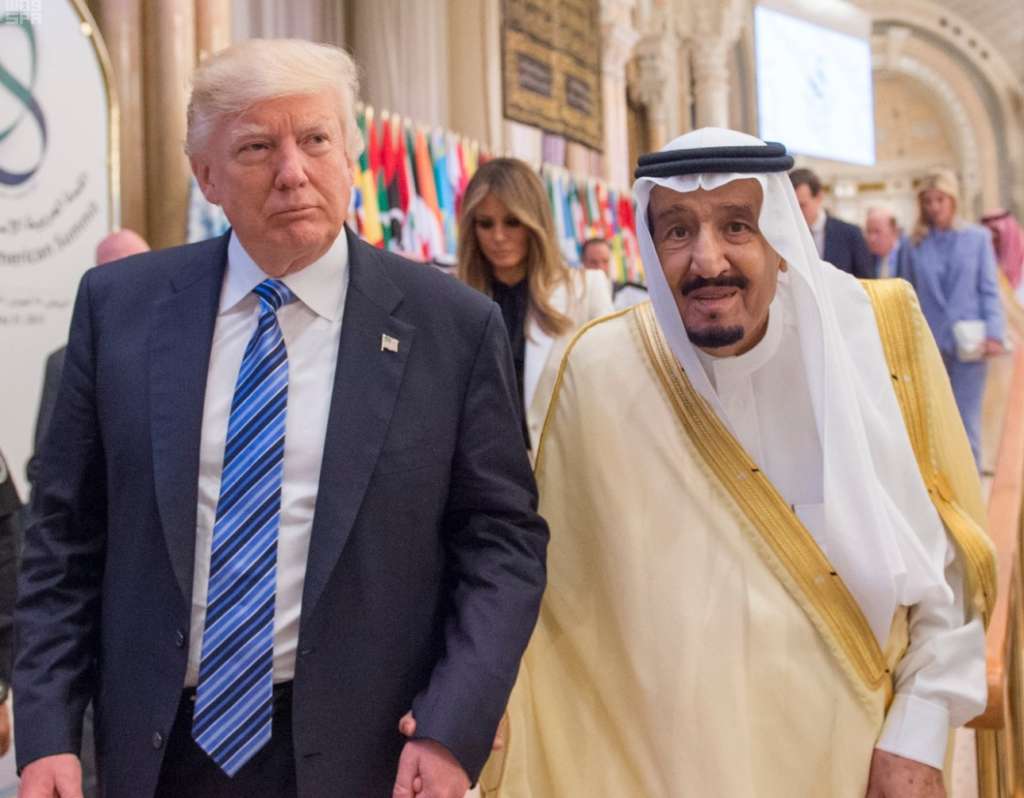On two consecutive days, two articles which pretty much share same ideas, were published criticizing US President Donald Trump’s visit to Saudi Arabia – claiming it is the “country of extremism and terrorism”.
Journalist and author Fareed Zakaria repeated what he always said in his articles and television program when he defended former President Barack Obama’s policy of rapprochement with Iran at the expense of relations with Saudi Arabia. He wrote that in a column published in the Washington Post.
With a logic similar to Zakaria’s, Iran’s Foreign Minister Mohammad Javad Zarif wrote an article that was published in the New York Times.
No on can deny that it is natural for the Iranian foreign minister to defend his country and justify its bloody and extremist policies adopted since Ayatollah Khomeini came to power in 1979. It’s his job to do so.
As for Zakaria, it suffices that most of those who praised his article are Iranian media outlets in the region.
They both mocked Trump’s visit and the Islamic summit while ignoring the significance of the attendance of more than 50 leaders from Muslim countries.
In fact, all Islamic governments actually responded to Saudi Arabia’s invitation except two countries: Iran and Syria. There’s no surprise here. All Muslim leaders went to the Saudi kingdom to confirm their rejection of accusing Islam and Islamists of the evil practices by lawless organizations. They showed their willingness to cooperate with the US in combating terrorism and extremism.
The event in Riyadh is a semi-consensus of Islamic countries to support Saudi Arabia in its project to bridge the gap with the West and prevent generalizations that lead to cultural and religious conflicts – the latter are exactly what extremists want and wish for.
This is Saudi Arabia’s idea and project, so what exactly is angering Iran and writers who support it?
Like Zarif, Zakaria did not like the fact that the current US administration decided to cooperate with Islamic countries, including Saudi Arabia, to combat terrorism. They tried to focus on the idea that Saudi Arabia follows a conservative school of Islam and interpreted this by concluding that Saudi Arabia is responsible for religious and politicized extremism and terrorism.
This is a distortion of the facts.
Religious and social extremism is present in all religions and not just in Islam, and in fact it exits in Saudi Arabia. However, religious political extremism is different thing and Islamic societies became acquainted with it only after Khomeini assumed power in Iran. He became an inspiration for Sunni and Shi’ite religious groups to governance by power, like he did.
At the time Saudi Arabia pursues, jails and executes those with ties to terrorism, Iran grants them top governmental posts, allows them to participate in its forged elections, and lead its armed troops deployed in Iraq, Syria and Yemen.
Whereas Saudi Arabia and the rest of Islamic countries have been – for 20 years now – confronting armed extremist groups and, in cooperation with the US, they killed many of the groups’ commanders.
In his opinion piece, Zakaria cited one telegram to exonerate Iran and accuse Saudi Arabia.
However, there are dozens of Congress accounts and a long session (held in December 2016) in which intelligence and defense department officials described Iran as the state primarily responsible for terrorism.
An international consensus to combat terrorism is required against armed Sunni and Shi’ite.
Will Iran accept this principle? Will it accept to participate in this task?
No, it will not, because it’s publicly managing armed extremist religious groups whose members are more than 20,000 brought from Iraq, Lebanon, Afghanistan and Pakistan.
Both Zarif and Zakaria know this truth. They only want to defend the historical mistake Obama made when he reconciled with Iran without lifting the sanctions through altering Iran’s hostile behavior against the region and other countries. The result was around 500,000 casualties in Syria alone.
